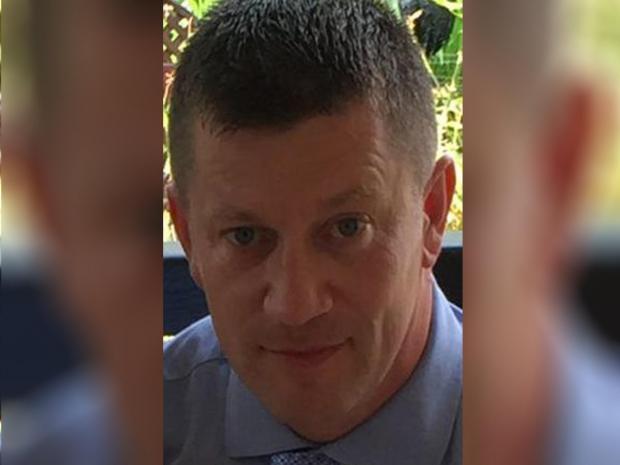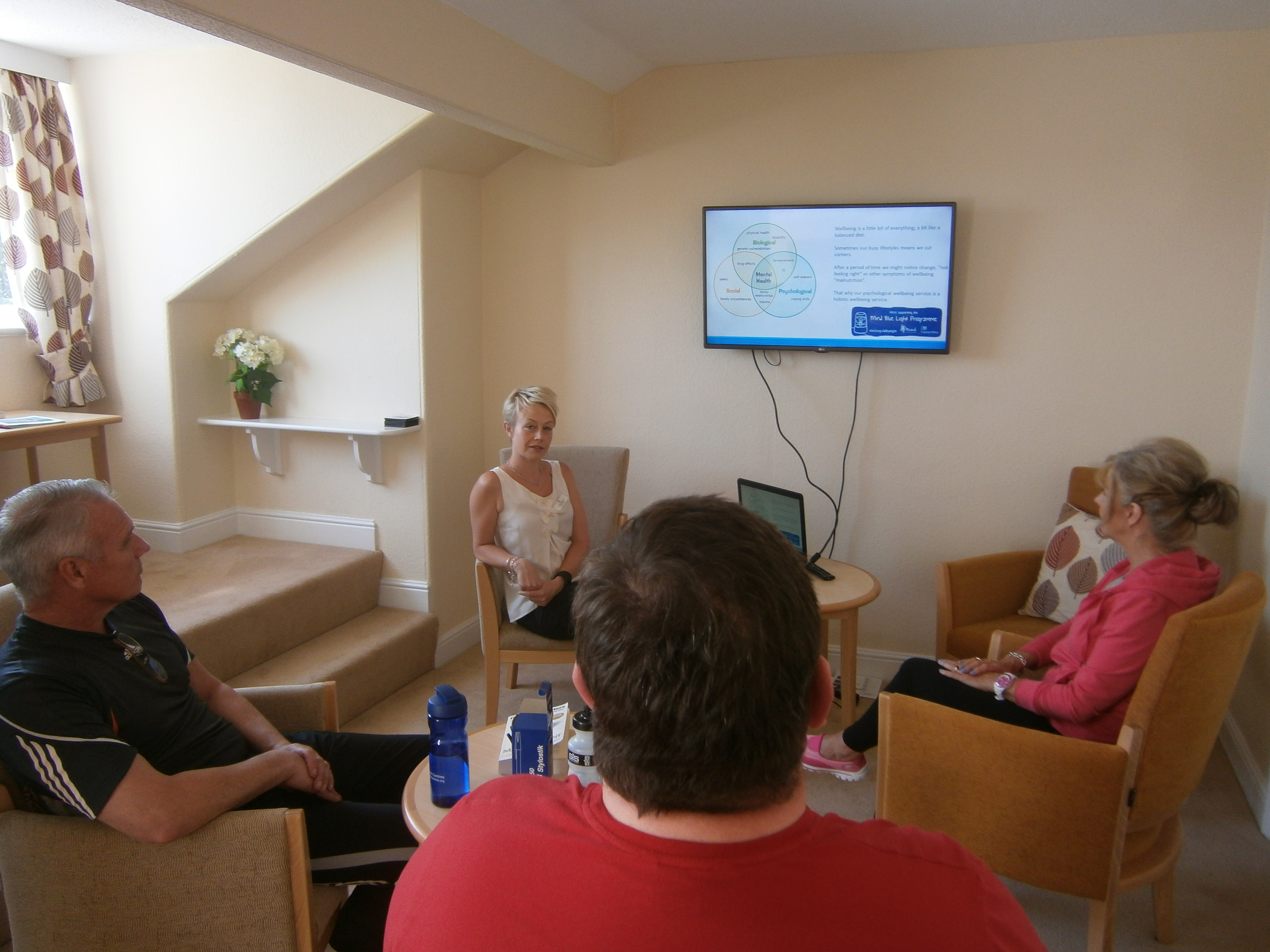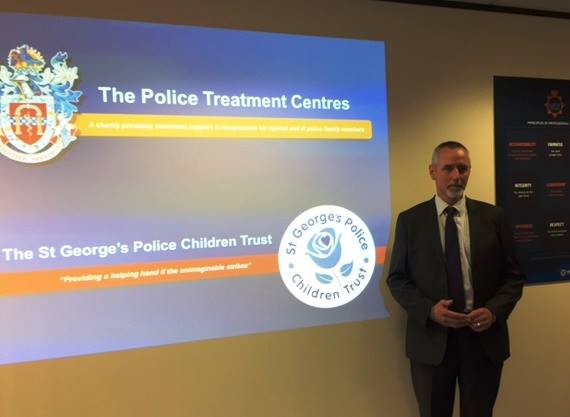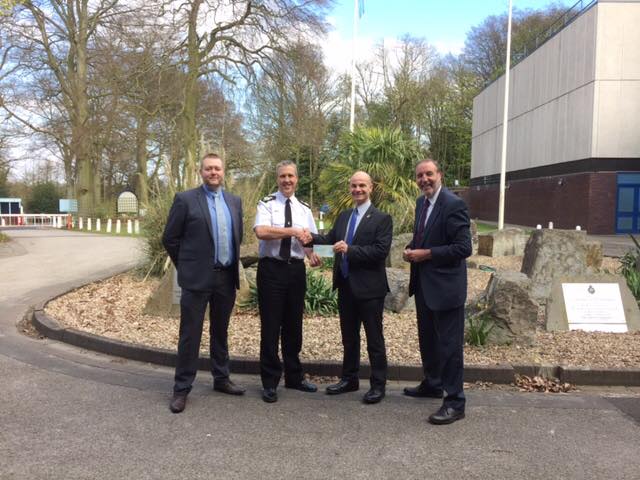The only way to really start this month’s blog is by paying our respects to PC Keith Palmer from the Metropolitan Police who was murdered on duty whilst working at the Palace of Westminster on Wednesday 22 March 2017, and of course by offering our condolences to all of Keith’s family, colleagues and friends. The PTC placed the flags at both our centres at Half Mast, and paused at 0933hrs the following day to remember Keith.

I along with Mark Oxley the PTC Head of Clinical Services and Helen Birks the Head Nurse at PTC Harrogate were at Preston that day attending a Police Dependants Trust (PDT) sponsored “PTSD and Stress in Policing Study Period”, which most of the delegates agreed was one of the biggest challenges currently affecting police officers today. The news of Keith’s murder came in during one of the afternoon forum discussions, and was a timely reminder of the inherently dangerous nature of policing, and even though we are very focused on looking at ways in which we can improve out treatment of stress related conditions, we simply cannot afford to ignore the physical demands of modern policing, and the risks that our police officers face every day on our behalf.
Both Centres are full at the moment, and there is a steady flow of serving and retired police patients into both centres. I do make a point of trying to talk to as many patients as possible during their stays with us, and it probably will not surprise anyone to learn that talking to our patients is often the most interesting part of my day, and the period of time when I pick up the most useful suggestions and advice. None of us at the PTC have a monopoly of good ideas, so it is really useful to speak to people and hear what is best about the PTC, and any suggestions that they might have for improving our service.
 In terms of the numbers of patients that we are treating, we are broadly on track with the numbers for the same period last year, but it has become apparent that the demand for treatment on our Psychological Wellbeing Programme (PWP) continues to grow and the waiting list for admission on this programme is longer than we would like. We are acutely aware that if an individual applies for treatment on the PWP they want to come as soon as possible, so we are examining a range of options at the moment to try and increase the numbers that we can treat each week, with the intent of reducing waiting times. I suspect that this is one of the key issues that will exercise the Board of Trustees at the Strategic Workshop in the Summer when we meet to consider our strategic objectives and 5 year plan of where we see the PTC going, and although I do not anticipate an obvious solution, it is likely that we will have to focus increased resources and activity within this area in the future, so we must ensure that we are able to do so effectively.
In terms of the numbers of patients that we are treating, we are broadly on track with the numbers for the same period last year, but it has become apparent that the demand for treatment on our Psychological Wellbeing Programme (PWP) continues to grow and the waiting list for admission on this programme is longer than we would like. We are acutely aware that if an individual applies for treatment on the PWP they want to come as soon as possible, so we are examining a range of options at the moment to try and increase the numbers that we can treat each week, with the intent of reducing waiting times. I suspect that this is one of the key issues that will exercise the Board of Trustees at the Strategic Workshop in the Summer when we meet to consider our strategic objectives and 5 year plan of where we see the PTC going, and although I do not anticipate an obvious solution, it is likely that we will have to focus increased resources and activity within this area in the future, so we must ensure that we are able to do so effectively.
 The PTC Donor Recruitment and Charity Engagement Team remains very active, and have spent an increasingly large amount of time out of the office this month on new student officer briefings, and variety of other conferences and meetings for both the PTC and St George’s Police Children’s Trust. I am conscious that it can spread them very thinly in terms of their office routine, but their personal engagement with our donors remains vital, and they are at the forefront of our interaction with our current and our future donors.
The PTC Donor Recruitment and Charity Engagement Team remains very active, and have spent an increasingly large amount of time out of the office this month on new student officer briefings, and variety of other conferences and meetings for both the PTC and St George’s Police Children’s Trust. I am conscious that it can spread them very thinly in terms of their office routine, but their personal engagement with our donors remains vital, and they are at the forefront of our interaction with our current and our future donors.
Visitors continue to flow into the centre, and this month we have been pleased to welcome Sue Hayman who is the Member of Parliament for Workington in Cumbria, and Paddy Tipping who is the PCC for Nottinghamshire.
 Paddy is one of our most ardent supporters and has made a PCC donation to the PTC in the past, and I am pleased to say that this example has now been followed by the new Chief Constable of Nottinghamshire Craig Guilford, who has already agreed a £10,000 donation to the PTC, which was presented to me by DCC Simon Torr recently when I went down to visit both the Notts Federation and the Senior Leadership Team. This was a timely presentation by Simon Torr as he heads off to retirement shortly, but when he visited the PTC a few months ago, he reminisced about his stay at the PTC in 1998 when he was a Sgt, and credits his time with us then as saving his career. Simon’s experience of the PTC is not unusual, I talk to many patients every week who have inspiring tales of the difference that treatment at the PTC has made to their work and life, and I am fond of saying that I routinely see individuals hobble up the entrance steps to our building on admission day, and 2 weeks later, they literally skip out of the building having been fixed.
Paddy is one of our most ardent supporters and has made a PCC donation to the PTC in the past, and I am pleased to say that this example has now been followed by the new Chief Constable of Nottinghamshire Craig Guilford, who has already agreed a £10,000 donation to the PTC, which was presented to me by DCC Simon Torr recently when I went down to visit both the Notts Federation and the Senior Leadership Team. This was a timely presentation by Simon Torr as he heads off to retirement shortly, but when he visited the PTC a few months ago, he reminisced about his stay at the PTC in 1998 when he was a Sgt, and credits his time with us then as saving his career. Simon’s experience of the PTC is not unusual, I talk to many patients every week who have inspiring tales of the difference that treatment at the PTC has made to their work and life, and I am fond of saying that I routinely see individuals hobble up the entrance steps to our building on admission day, and 2 weeks later, they literally skip out of the building having been fixed.
It is not like that for everyone of course, but a stay at the PTC has been shown by a recent external study by Aberdeen University to make dramatic improvements in patients physical health and wellbeing, and I encourage everyone to continue to tell as many of their colleagues about the PTC as possible, and to get them to sign up as donors.
That concludes the blog for this month, but stay safe out there whatever you are and whatever you are doing.
Feliciter Servimus
Patrick Cairns
CEO PTC
<<Back